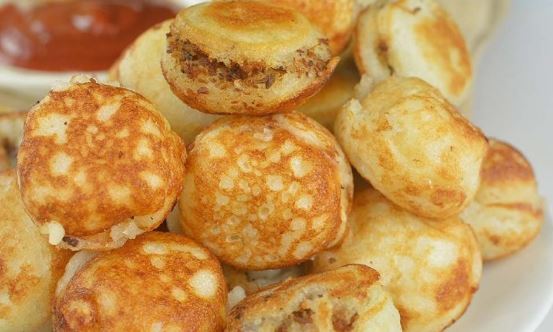On average, the diet of the modern man potentially prepares him for more aggravated diseases.
More and more individuals fall short of the average healthy diet because of the neglect of proper nutrition and diet.
In modern Africa, many nutritious delicacies have been tossed aside and replaced with on-the-go meals and snacks, heavily
chemicalised to preserve them.
Nigeria’s over 250 ethnic groups traditionally have a common reverence for food and its preparation. This means that traditional meals and preparation methods are more of art statements.
It is for this artistic and cultural reasons that female Nigerians undergo informal coaching by their mothers. Girls are expected to
artistically replicate these cooking methods in their homes when they grow up.
Three of the classic Nigerian snacks will be discussed here:
Masa
Masa is a corn dough (sometimes rice) that is native to northern Nigeria.
Popular among residents of north-eastern, north-western and middle belt Nigeria, Masa serves both as a snack and meal. For residents in middle-belt Nigeria like Plateau, it is usually served with yagi, a type of mixed-spice powder.
For the more traditional people of northern states like Kebbi, Masa is served with a special type of soup.
Masa is rich in vitamin A, B-6, B-12, magnesium, calcium and iron.
Abacha
For the Nigerians constantly seeking English translation for traditional meals, Abacha may be known as African Salad.
With its composition of garden eggs, onion, etc, Abacha is not surprisingly rich in vital vitamins.
Ingredients like ugba or ukpaka (oil bean seeds) are also very rich in the necessary nutrients required in the human system.
Bole
Also known as boli, it forms a popular part of the south-southern and south-western delicacy.
Bole is roasted plantain served with either groundnut or pepper-sauce.
The natural richness of plantain in iron mixed with the vitamin-rich pepper sauce or groundnut makes this snack a
healthy choice in Nigerian cuisine.
Despite the health risks, most Nigerians tend to prefer the street version of these snacks to those made at home.
Copyright 2024 TheCable. All rights reserved. This material, and other digital content on this website, may not be reproduced, published, broadcast, rewritten or redistributed in whole or in part without prior express written permission from TheCable.
Follow us on twitter @Thecablestyle

